It’s shincha time! But because I have exercised great restraint and not placed an order for shincha (I just found 3 unopened packs of Lupicia tea in my cabinet so I probably should not be buying tea yet), what I have to drink are these senchas from 2017. They were part of The Tea Crane’s tea subscription and according to the newsletter that came with them, they were part of the 2017 spring harvest and have been kept in temperature and humidity controlled environments since.
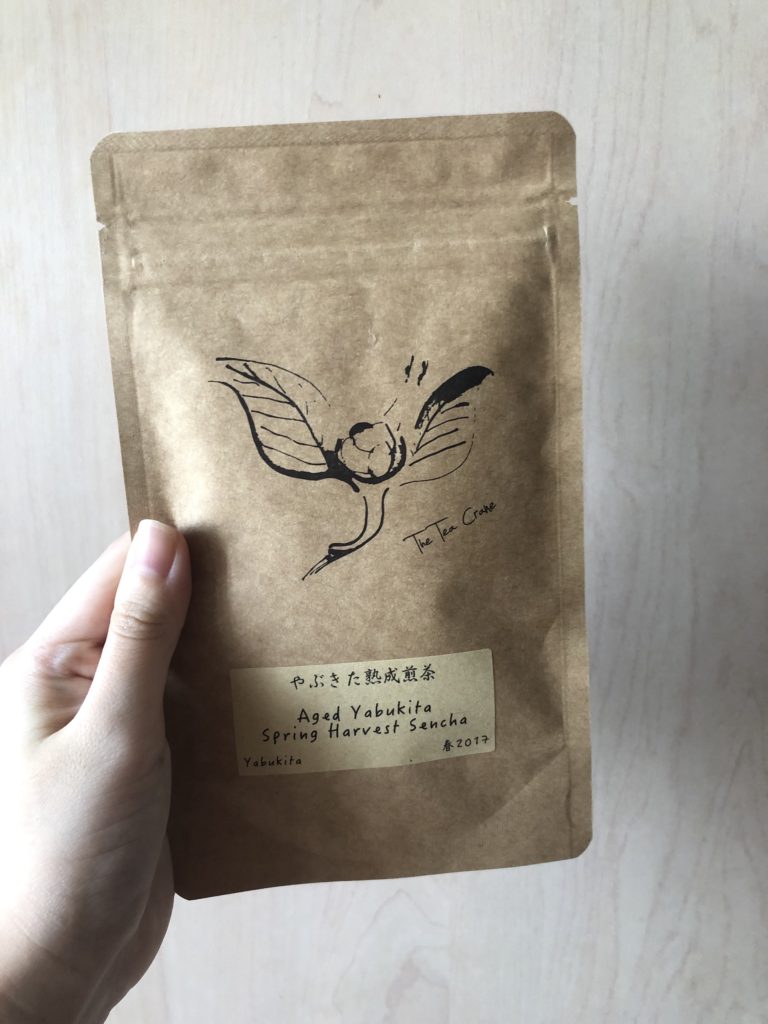
I was really excited to drink this but I have to warn you that I’m not really familiar with aged teas in general. I guess it’s obvious because I rarely review raw puer (maybe twice? so far?). But since I am somewhat familiar with Japanese teas, so I was excited to try this Yabukita and see how it compares to the un-aged version.
First Impressions
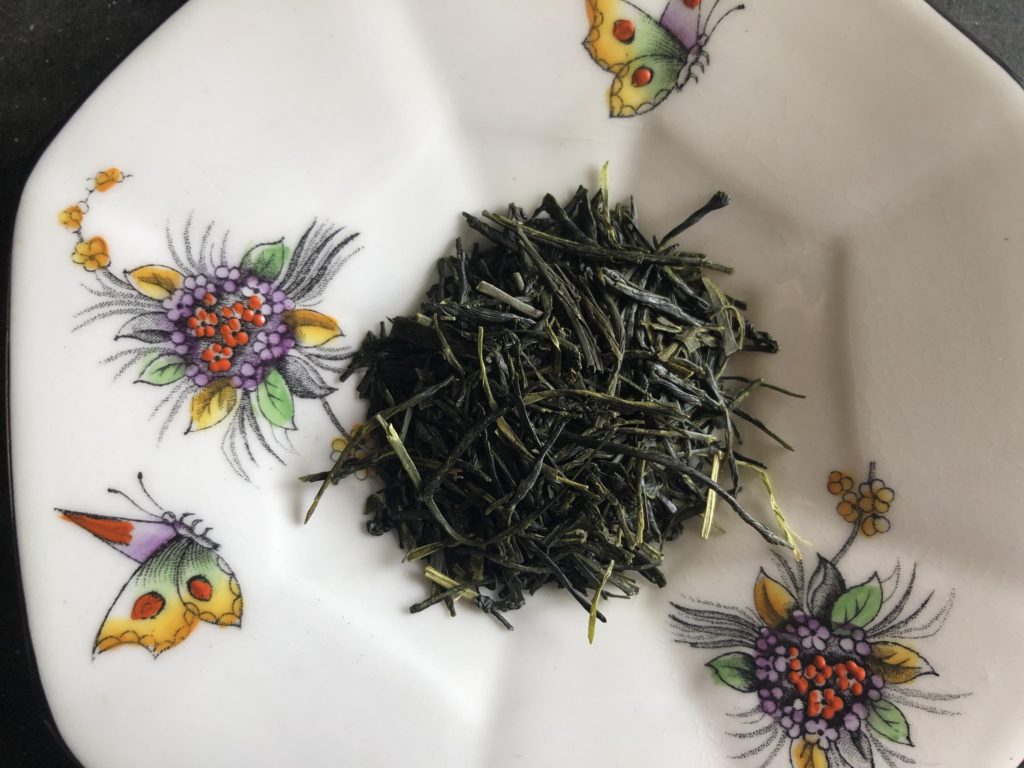
The dry leaves look very similar to the un-aged version. They are dark green with an intense umami smell, followed by a vegetal note.
Tasting Notes
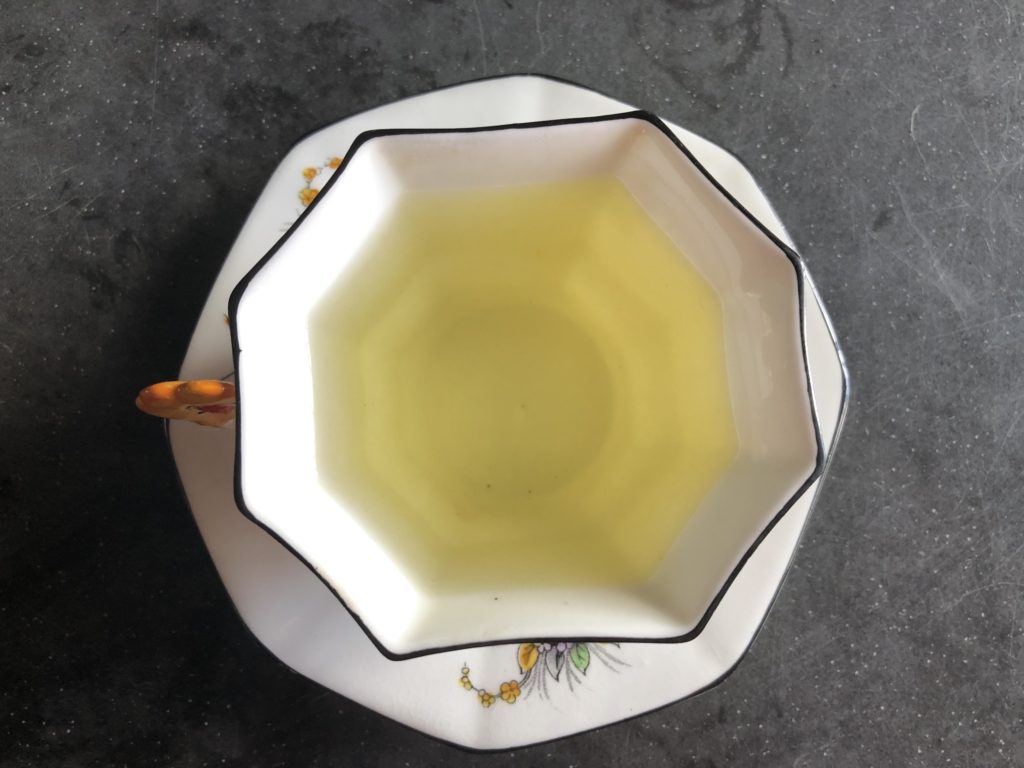
The first steep (short steeping time but very high temperature, as recommended in the newsletter) resulted in a light green tea liquor. Despite the high temperature, the tea was not bitter – instead it was sweet and vegetal. Unlike the impression given by the dry leaves, I didn’t really get an umami note. Overall, though, it’s a very smooth tea.
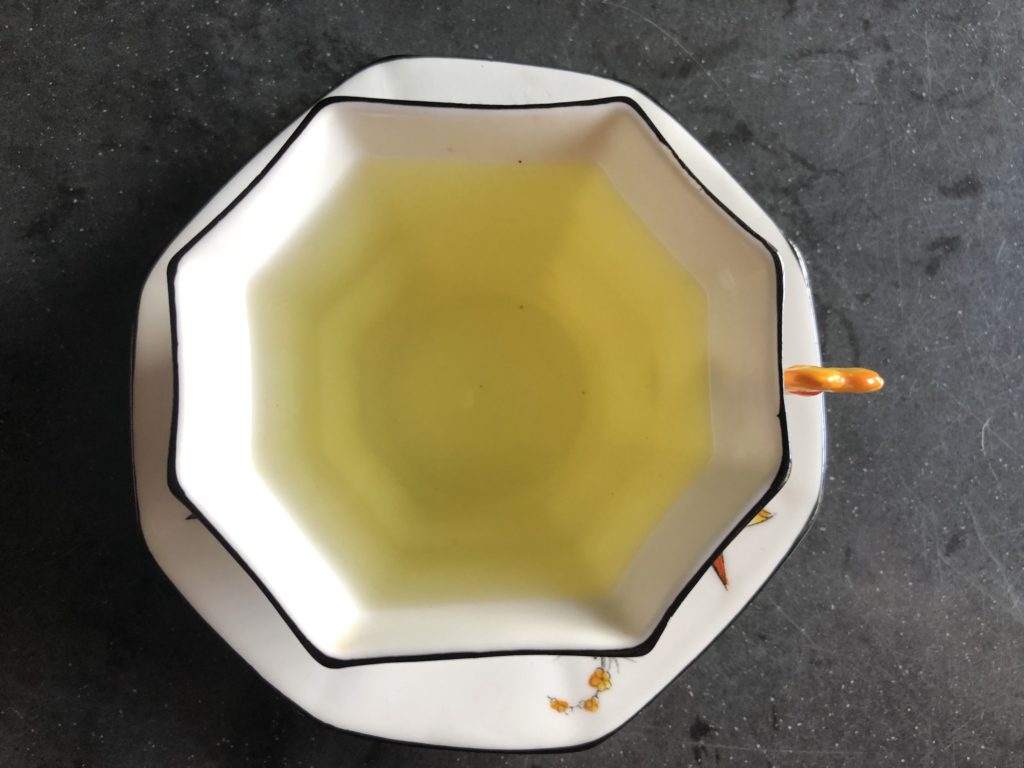
The tea liquor from the second steep is a slightly darker but still light green colour. Surprisingly, the sweetness has disappeared and instead, I got a distinct vegetal note with some bitterness. The bitterness doesn’t really last but it’s definitely in the first few sips.
From there on, the tea starts to mellow out. The bitter note deepened in the third steep (for the first session) and then disappeared in the fourth steep. Once the bitter note is gone, the tea is all vegetal and some sweetness, which is pretty pleasant. I managed to get five steeps out of this, but sadly there wasn’t an umami note anywhere in my sessions with this tea.
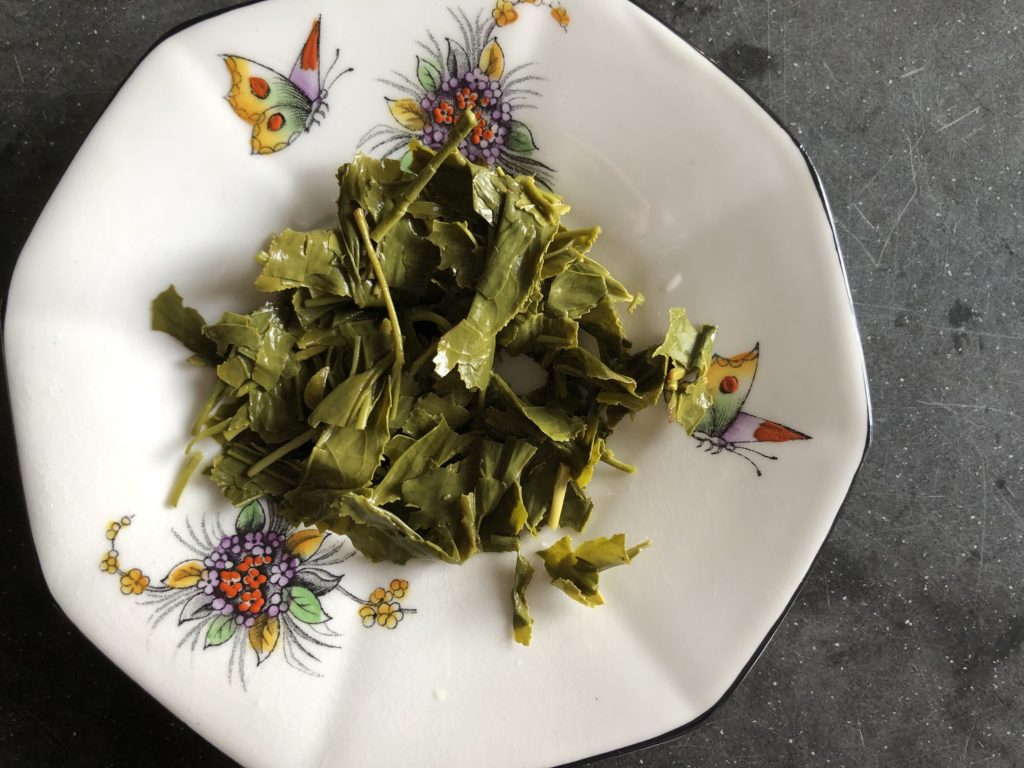
The spent leaves look a lot like the unaged version to me!
Conclusion
From what I remember, Yabukita teas tend to have a stronger umami note, so perhaps it’s disappearance is due to the ageing process? Apart from that, I can’t really tell what the advantages of ageing is for green tea, given that the tea doesn’t change drastically apart from the umami thing.
I still have one more aged sencha to try, so stay tuned to see if things change!
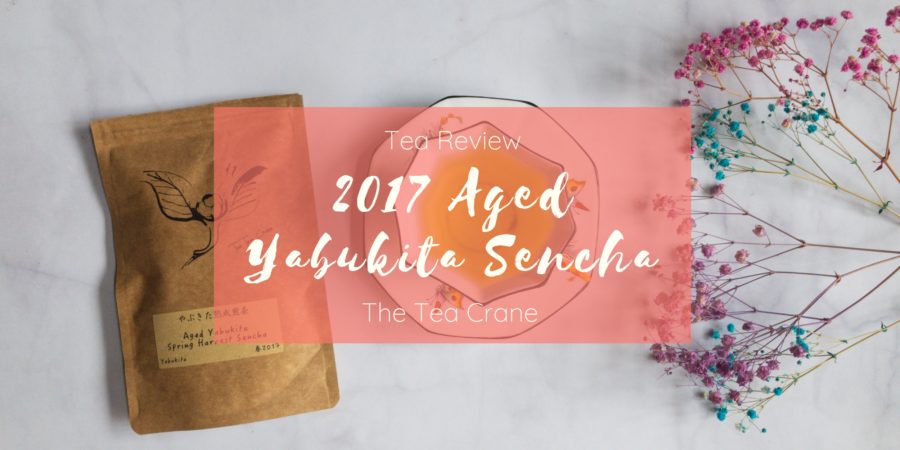
This sounds quite uneventful, the tea itself seems to be fine but nothing particularly special
yup! I’m sure I’ve had cultivars where the un-aged sencha tastes like this haha
Japanese green tea is quite weak if no umami. The only ones got “kick” are matcha and goykuro. I still prefer Chinese green tea like Zhu Ye Qing and Xingyang Maojian. I had tried a 3-years-old Maojian before. It’s soooo good!
I’ve not tried aged Chinese green teas, but now I’m curious!